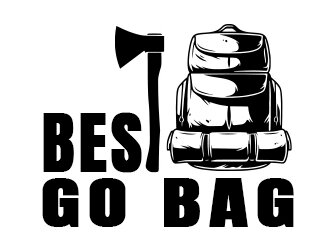Remember the Great War of 1985? If you’re scratching your head on that one, I’ll admit it… it wasn’t so great.
The media called it the “Pasta War.” It started when Europeans refused to respond to U.S. complaints of discrimination against American citrus products.
President Ronald Reagan retaliated by raising tariffs on our pasta exports. Europe then countered by raising tariffs on their lemon and walnut exports.
In essence, “free trade” was turning into a bartering system. And everybody ended up paying more for products than they were worth. Or they just did without.
More recently, Ukraine has been forced to barter due to its war with Russia. They’ve had difficulty shipping the large supply of grains and sunflower oil they’re known for.
Your money’s no good here
What does this have to do with today? Or the future? Well, one of the reasons some people don’t bother thinking about or preparing for a disaster is because they believe they have enough money to get through it. No matter how bad it becomes.
They’re used to drawing upon their wealth to take care of problems. So, they assume their finances will come to the rescue again if necessary.
But if we ever experience a total financial collapse – and some believe the signs are pointing in that direction – no amount of money in the world will help.
Any number of events could thrust America into that horrific situation. Including an EMP attack that could keep funds locked inside banks for weeks or months.
First focus on food
It’s important to remember that we may find ourselves in a scenario where money is meaningless. Regardless of your financial status.
In a post-collapse society, it’s possible the only things of value will be the goods we have stockpiled and the skills we possess. Both of which we’ll probably use for bartering.
Of course, the most essential items you can store now are food and water for yourself and your family. Start with a 72-hour supply. Then, as you’re able, graduate to supplies representing one month, three months, six months, a year, and longer.
In addition, stockpile as many non-food items as you can. These would include a crank-operated radio, a fixed blade knife, a solar-powered flashlight, paracord, fire starters, a first-aid kit, and much more.
Consider your return on investment
Once you have those emergency items stockpiled, it’s time to start thinking about which items you can hoard and which skills you can acquire. They’ll both be useful in a society that has reverted to the bartering system for everyday personal commerce.
There are a countless number of items you could decide to hoard for bartering. But you’ll never be able to stockpile everything.
The key is to choose items that will give you the biggest return on your investment.
In other words, the items for which there is the largest difference between what they cost you now and what they will bring in trade later. Another important consideration is shelf life.
Food for bartering
Food and water will probably be the two most sought-after items in a post-collapse society. People will be interested in securing many of those types of items. If you possess the ones listed below, you’ll be able to use them for bartering.
- Eggs
- Pasta
- Canned meats
- Canned vegetables
- Peanut butter
- Dried beans
- . Powdered milk
- White rice
- Bottled water
- . Coffee
- Chocolate
- Cigarettes
- Alcohol
- Candy
High-demand bartering supplies
But you won’t want to trade away too much food. It will be your sustenance for a possible long-term disruption in the food supply.
For your main bartering supply, you should choose items others don’t think to stockpile, but which will be in high demand. Including those listed below:
- Water filters and water purification tablets
- Fire-starting devices
- Flashlights
- Batteries
- Paracord
- Non-GMO seeds
- Gasoline and oil
- Precious metals
- Clothing
- Medicines
- Bug repellent
- Soap
- Candles
- Toilet paper and other paper products
- Tools/nails/screws/work gloves, etc.
- Gardening tools
- Manual can opener
- Reading glasses
- Garbage bags
- Laundry detergent
- Baby products
- Hygiene products
- Pet supplies
- Musical instruments
- Books
- Ammunition
Valuable skills for bartering
Now think about the types of skills you could hone or learn that will have at least as much value and maybe more in a post-collapse society than today. Among them could be:
- Small-engine repair
- Gun repair/cleaning
- Appliance repair
- Medical services
- Construction/building
- Welding
- Farming
- Hunting
- Blacksmithing
- Sewing/mending
- Protection/defense
- Psychology/counseling
One final thing to consider. Don’t let those with whom you barter know the extent of your supplies.
If they learn you possess many more supplies in which they’re interested, they may just use that ammo they acquired from you to come back and try to relieve you of them.

